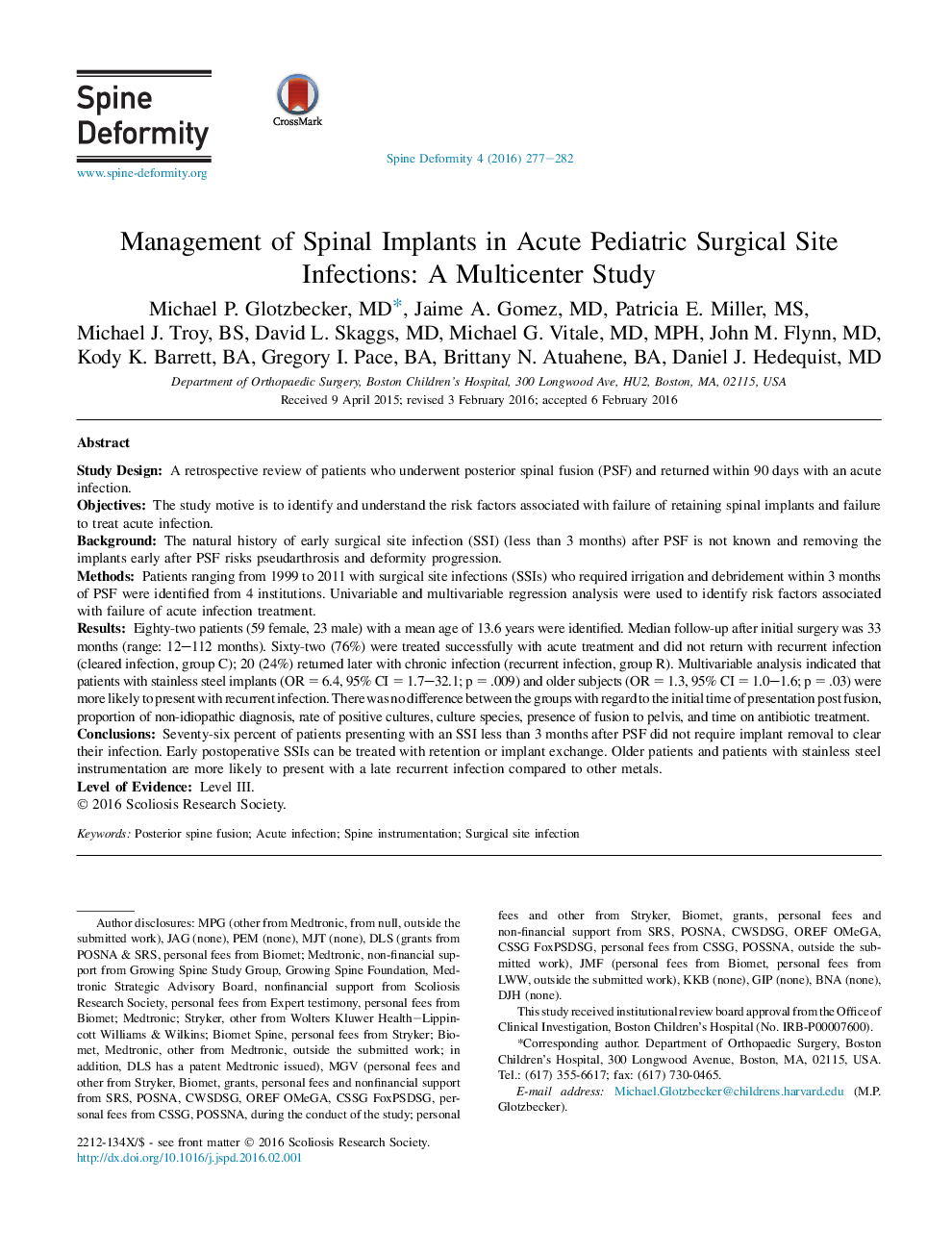| کد مقاله | کد نشریه | سال انتشار | مقاله انگلیسی | نسخه تمام متن |
|---|---|---|---|---|
| 4095330 | 1268528 | 2016 | 6 صفحه PDF | دانلود رایگان |
Study DesignA retrospective review of patients who underwent posterior spinal fusion (PSF) and returned within 90 days with an acute infection.ObjectivesThe study motive is to identify and understand the risk factors associated with failure of retaining spinal implants and failure to treat acute infection.BackgroundThe natural history of early surgical site infection (SSI) (less than 3 months) after PSF is not known and removing the implants early after PSF risks pseudarthrosis and deformity progression.MethodsPatients ranging from 1999 to 2011 with surgical site infections (SSIs) who required irrigation and debridement within 3 months of PSF were identified from 4 institutions. Univariable and multivariable regression analysis were used to identify risk factors associated with failure of acute infection treatment.ResultsEighty-two patients (59 female, 23 male) with a mean age of 13.6 years were identified. Median follow-up after initial surgery was 33 months (range: 12–112 months). Sixty-two (76%) were treated successfully with acute treatment and did not return with recurrent infection (cleared infection, group C); 20 (24%) returned later with chronic infection (recurrent infection, group R). Multivariable analysis indicated that patients with stainless steel implants (OR = 6.4, 95% CI = 1.7–32.1; p = .009) and older subjects (OR = 1.3, 95% CI = 1.0–1.6; p = .03) were more likely to present with recurrent infection. There was no difference between the groups with regard to the initial time of presentation post fusion, proportion of non-idiopathic diagnosis, rate of positive cultures, culture species, presence of fusion to pelvis, and time on antibiotic treatment.ConclusionsSeventy-six percent of patients presenting with an SSI less than 3 months after PSF did not require implant removal to clear their infection. Early postoperative SSIs can be treated with retention or implant exchange. Older patients and patients with stainless steel instrumentation are more likely to present with a late recurrent infection compared to other metals.Level of EvidenceLevel III.
Journal: Spine Deformity - Volume 4, Issue 4, July 2016, Pages 277–282
